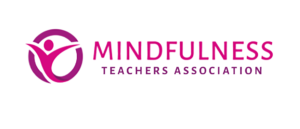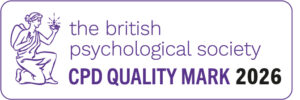Best Practice Guidelines for Mindfulness Teachers
These guiding principles have been developed by the Mindfulness Teachers Association (MTA) to promote integrity, consistency, and high standards in the teaching of mindfulness-based approaches. MTA-accredited teachers are expected to embody these best practices in order to support the safe, effective, and ethical delivery of mindfulness programmes across a range of settings.
Mindfulness courses aim to support participants in managing physical and psychological health challenges and developing resilience to life’s stressors. These guidelines apply to secular, evidence-based, mainstream mindfulness programmes, typically taught over eight weeks and including structured home practice.
To find out more please click here for the MTA Best Practice Guidelines for Mindfulness Teachers and Training Organisations
The Mindfulness-Based Programmes Covered
These programmes are:
Informed by a clearly articulated rationale;
Teacher-led and experiential in nature;
Based on a defined curriculum;
Structured across a minimum of eight sessions with 30–45 minutes of daily home practice;
Designed for scalability and accessibility in community, educational, workplace, and healthcare settings;
Committed to ongoing evaluation and grounded in research evidence.
Examples include (but are not limited to): Mindfulness-Based Stress Reduction (MBSR), Mindfulness-Based Cognitive Therapy (MBCT), Mindfulness Now, and other programmes listed in the MTA’s About the Register.
A. Mindfulness-Based Teacher Training Requirements
Direct Personal Experience
Teachers must have completed in-depth personal experience with all core mindfulness and meditation practices. To have an established daily mindfulness meditation practice for a least 6 months.Comprehensive Teacher Training
Teachers must have completed a rigorous mindfulness teacher training or supervised pathway. The training must have contained observational assessment during the course of the training by a trainer or tutor. Training should have included mindfulness teaching practice with fellow students, discussion and questions and answers with your trainers or tutors. All post-course assessments need to have involved both a practical assessment of teaching and a written assesssment of teaching.
B. Ongoing Good Practice Commitments
Sustained Personal Mindfulness Practice
All teachers must maintain a regular personal mindfulness practice, including:Daily formal and informal meditation;
Annual attendance at a teacher-led mindfulness retreat including extended periods of silence.
Supervision and Peer Reflection
Teachers are expected to:Engage in regular formal supervision with an experienced mindfulness-based teacher;
Share reflective dialogue on teaching and personal mindfulness practice.
Continued Professional Development (CPD)
Teachers commit to:Ongoing training and CPD relevant to their mindfulness teaching;
Staying current with emerging research and developments in mindfulness-based interventions;
Reflective journaling, peer forums, and professional dialogue.
Ethical Standards and Professional Conduct
Teachers must adhere to the ethical framework relevant to their profession and teaching context. Where no existing framework is applicable.

Why Registration with the MTA Matters
Registration with the Mindfulness Teachers Association ensures that you are recognised as a teacher who:
Meets robust training and ethical standards;
Maintains an active commitment to integrity, compassion, and self-awareness;
Is part of a professional community of practice;
Is listed in the MTA Accredited Teachers Register, allowing members of the public and employers to find trusted, qualified mindfulness teachers.




